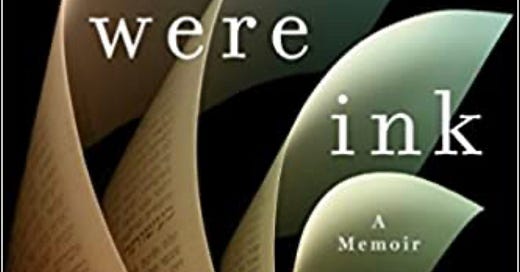A joyful read. Kurshan is a deep, honest storyteller who writes about her meanderings through the Talmud as her life in Jerusalem unfolds time and time again.
It's a work more personal and confessionary than academic, and as a lover of stories and aphorisms, I appreciated this. She's very relatable. One of my favorite passages features Kurshan lecturing a group of high-falutin and searching teens from America who bombard her with all sorts of existential questions about the morality and plausibility of certain tenets of Judaism. In offering answers sufficient to her and not to them, she tells us simply that these questions don't bother her anymore. That she has planted a stake in daf yomi, and as Rilke so aptly put it, has found comfort in the questions and faith that she will soon live into the answers. It's a beautifully rendered anecdote about the urgency of youth versus the elongated nature of time as we grow older. In some ways, certainly, this statement has it backwards, and as we grow older, time shrinks, and time all of the sudden feels tangible and limited in a way it hadn't felt previously.
In any case, with the Talmud as the book's skeleton, Kurshan captures her very own living into the answers. She admits that, as a translator, she is not engaging in divine service on a day-to-day basis. It is, in reality, a mundane profession. But that’s ok, and herein might lie a wondrous truth. That, as Kurshan explains and the evanescence of the autumnal leaves and the evening sunset demonstrates, a quintessential feature of beauty is that in ebbs and flows. She starts off a romantic—akin to Dorothea Brooke in Middlemarch—believing verbatim in the lofty ideals of British Romantic-era poetry. And slowly we witness her journey descending into the world through the Talmud, a text unashamed in its realism.
One of the beauties of canonical texts is that they invite interpretation and reinterpretation. They are specific enough such one can try to identify the intentions of the author, but leave enough white space for one to read between the lines. How else could a text stand the test of millennia, revolution after revolution, renaissance following renaissance?
Such is the Talmud. Each commentator learns the text though their unique lens, enriching our lives and the text itself in the process. For example, Arbabanel, who was exiled by the Spanish inquisition, despised the monarchy, which influenced his exegesis.
One gem of many arises in Sotah 4b: “Anyone who eats bread without first washing his hands, it is as if he had sex with a prostitute.”
As a writer, Jew and perennial lover of aphorisms, I reveled in the tapestry of Kurshan’s words. I can only think that in writing this book, maybe she fulfilled the last mitzvah in the Torah.
3/4.


